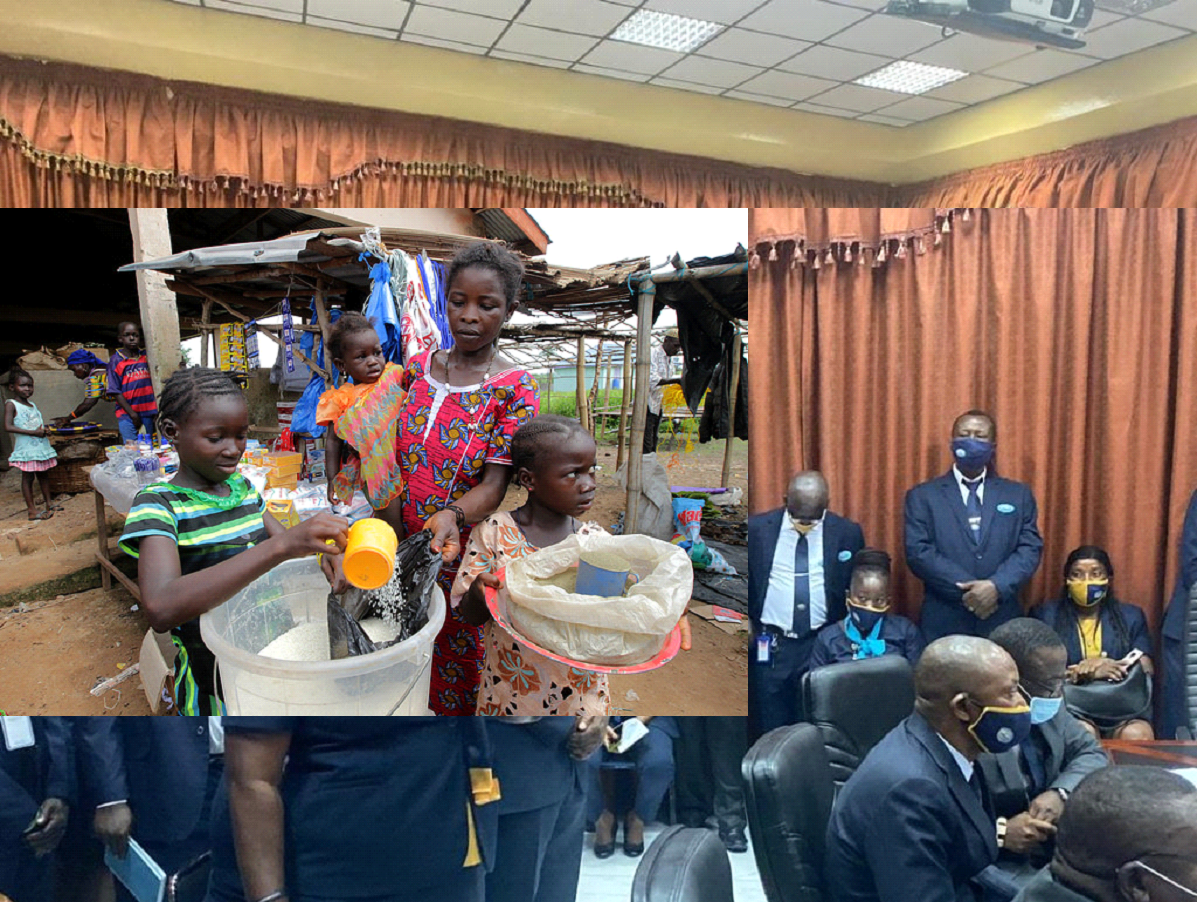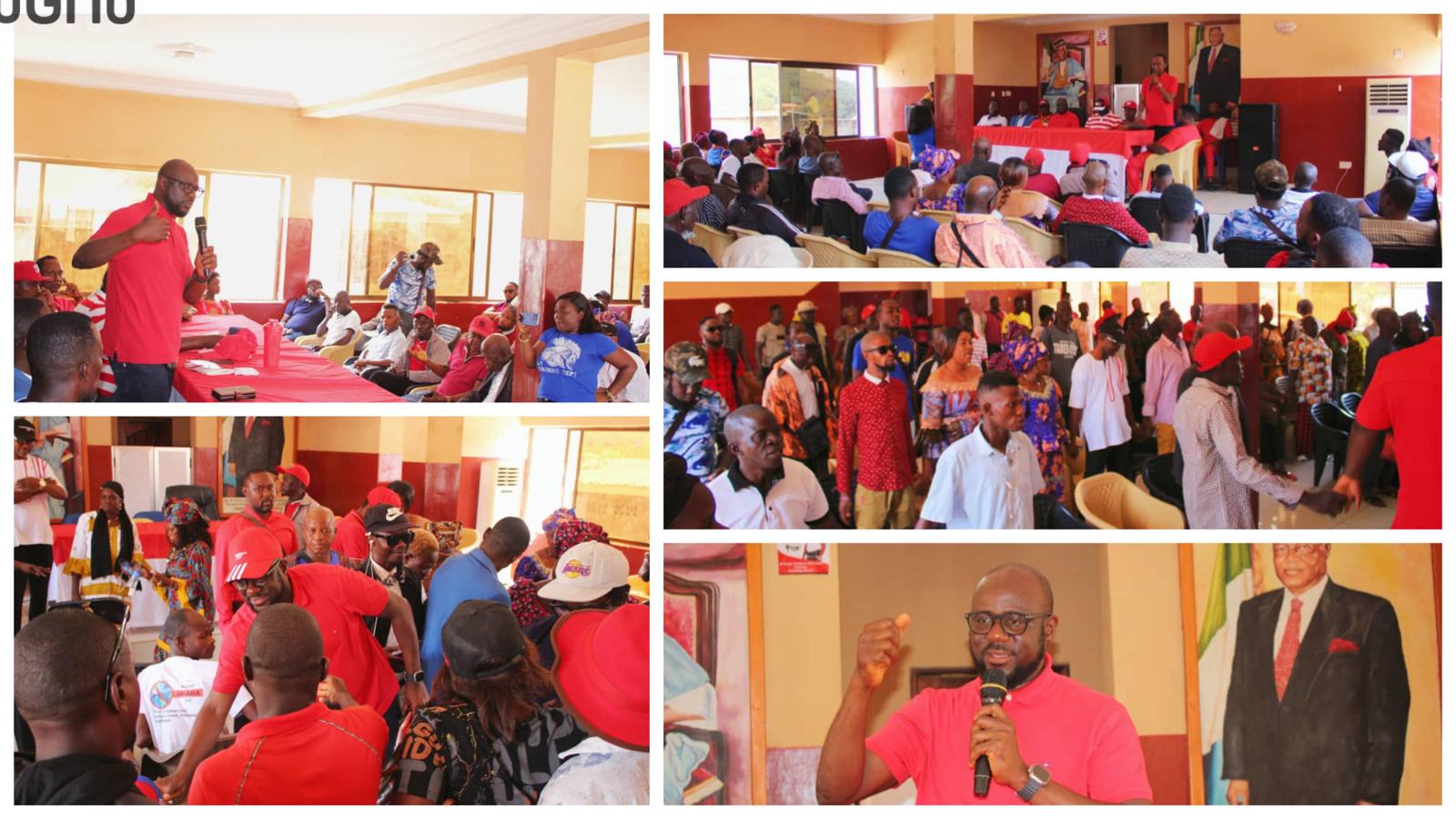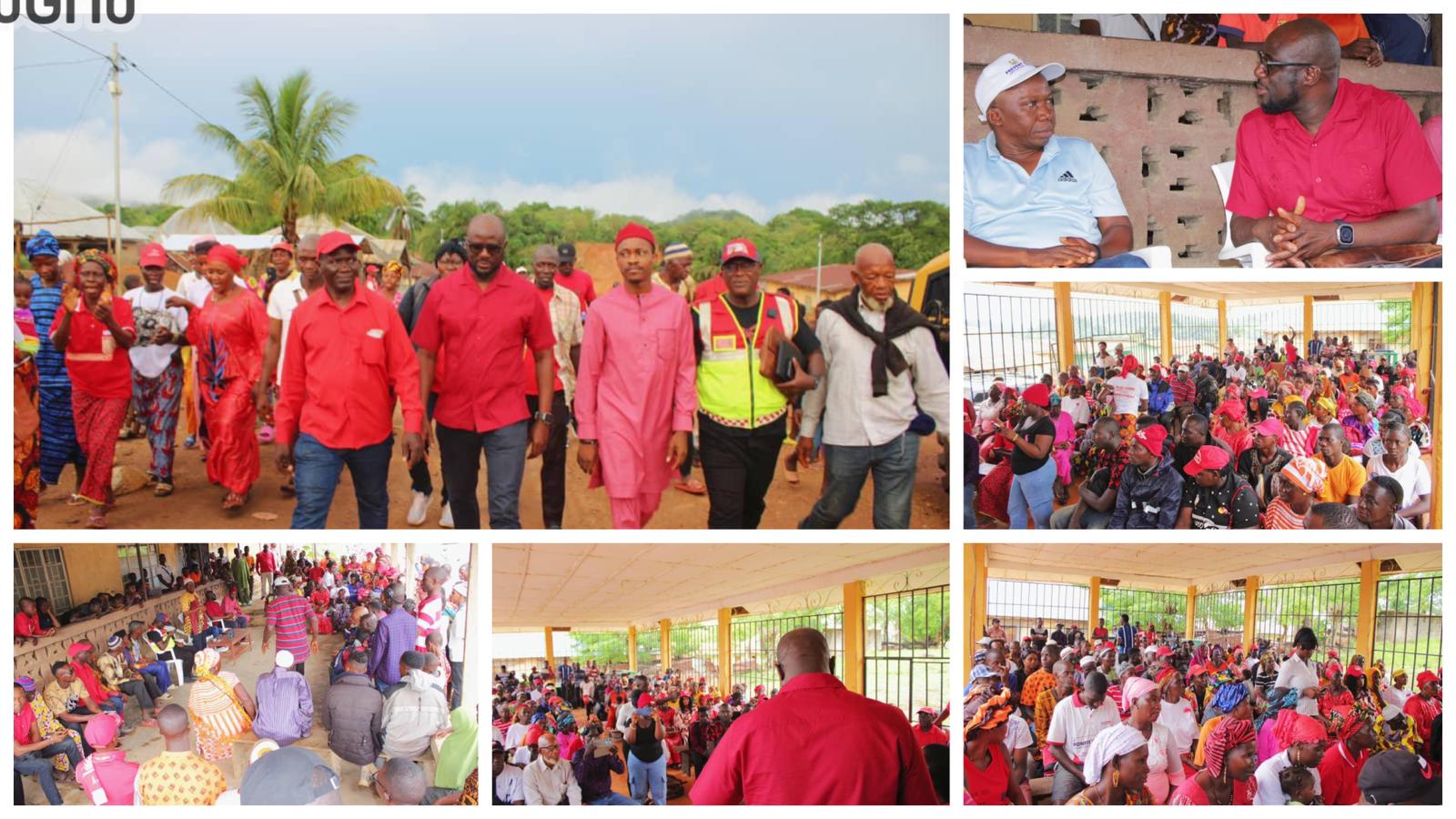
NO one irritates Paopaists more than those who ask them probing questions. Indeed, former US President Barack Obama put it succinctly about those who exhibit such blinkered attitude when he once said: “Increasingly, we become so secure in our bubbles that we accept only information, whether true or not, that fits our opinions, instead of basing our opinions on the evidence that’s out there.”
This observation came to mind because of the reaction to last week’s Letter from England from a certain group of people – the core backers of Paopa, the hard-line faction within the SLPP. Over the last two years, they have become intolerant to any questions about the rights and wrongs of the Poapa government of President Maada Bio. They are quick to accuse those who ask pertinent questions of being unpatriotic when their views differ from those of the Paopaists. But what they fail to acknowledge is that real patriotism is a willingness to challenge the government of the day when it is wrong.
One must admit that Bio and his Paopa clan came to power on brilliant messaging. There were statements about “fighting corruption”, “cutting big government” and such like. Their manifesto was precise. The salient section stated: “I promise a New Direction for Sierra Leone as a united, peaceful, progressive, dynamic, confident, enterprising and happy nation where the people have unlimited access to jobs, food, education and health services and where there is equal justice and equal opportunity for all.
“We must transform Sierra Leone into a middle-income country of the 21st century. This is my vision for Sierra Leone. The flagship of our strategic priorities will focus on developing the country’s human capital through free education.
“We believe in giving every child a good education so that they can develop themselves, support their families and build our nation for the future. To achieve this audacious vision, we will change and transform our economy through diversification, transformation of our agricultural sector through mechanised commercial farming, invest in building our critical infrastructure and above all, provide efficient and effective political and economic management of the state and its natural resources guided by respect for the supremacy of the Rule of Law. Our New Direction therefore offers the people of Sierra Leone.”
It is now more than two years since the Paopa SLPP came to power and so, it is but fair that one should start to ask questions, reflect and, indeed, have conversations about what has happened since: whether they have begun implementing any of their promises.
In many ways, voters are eternal optimists who can’t learn from experience. They always want to believe that their politicians will improve their lives. They believe in sweet nothings. So, they fail to actually scrutinise election promises. But when post-election reality hits, they realise how unrealistic their hopes were in believing that somehow “this time,” the outcome would be different.
How realistic was the promise that donor countries were going give the new Paopa government billions to spend on Sierra Leoneans? How realistic is the prospect of a bridge across the Sierra Leone River within the next two years — it being the maximum time this government will have to deliver on it promises?
In 2008, many Obama supporters and independent voters alike got caught up in this sort of mass delusion fuelled by inflated expectations. Supporters sought miraculous results from Obama and the Democratic Congress who they voted into office. When the miracle failed to materialise, they reacted with outrage and contempt.
Obama could not deliver on one of his promises that did not even need money — closing down Guantanamo Bay Prison within his first 100 days as president. Indeed, 12 years on, detainees are still languishing there without charge. The Obama presidency, in the meantime, has come and gone.
One of the flagship programmes of the Paopa government were and remain education and, of course, the empowerment of the girl-child. The 5th UN Sustainable Development Goal is gender equality and the empowerment of all women and girls. Gender equality is not only a fundamental human right but a necessary foundation for a peaceful, prosperous and sustainable world.
Providing women and girls with equal access to education, health care, decent work, and representation in political and economic decision-making processes will fuel sustainable economies and benefit society and humanity at large. The President’s wife, Fatima Bio, was clever enough to identify herself with this goal but, evidently, she is not smart enough to fight for its implementation.
However, the failure of the Paopa education programme started with a deception. They claimed that they were introducing “free education” when in fact they were simply adding more facilities to a system started under the last SLPP government of the late Alhaji Ahmed Tejan Kabbah, and was further boosted by Ernest Bai Koroma’s APC government.
This is a fact; and it would have been of little concern to the average Sierra Leonean had they not rushed to implement the “free education” policy. All the government had to do was to gradually introduce the additional facilities and free items on a regional and/or sectional basis; stress-test the introduction; correct and fine tune any mistakes; and improve conditions before moving the process further to cover the whole country.
If the government had started the process that way, by now half of the country would have had a reasonably well managed free education system, with decent school structures, and acceptable conditions that would have been pleasing to the eyes of school children, their parents, teachers and the country as a whole.
Today as we speak, the Paopa “free education” policy is on life support, because their initial actions were not properly thought out. And by the way, what happened to all of those pledges made by government ministers and many others when their “free education” scheme was launched in August 2019?
Two years into its five-year term, the Paopa government is struggling to hold on to the political capital that gave it power in 2018. Within the corridors of power, many of the young ministers and political appointees, who boasted back then that they had the Ph.Ds. and other university degrees that equipped them to transform Sierra Leone’s economy are struggling. They have failed woefully to get a proper understanding of the nature of governance and are beginning to sense that support in 2023 is rapidly being diluted. One Paopa supporter who spoke to me on condition of anonymity on the phone from Freetown told me: “The government’s actions and decisions since they came to power have been poorly thought out. We have governed with malice and vengeance.”
It was Herbert Spencer, an English philosopher, who noted: “The great aim of education is not knowledge, but action.” Politicians and their campaign teams regularly promise to cure the ills of society by reducing taxes, attracting investment, creating jobs, fighting corruption and supporting various freedoms. And voters always hope that if elected the politicians would bring about vast improvements in these sectors. But for politicians to be able to bring about these changes, they need the knowledge and skills to bring about transformation.
However, what we have is a Paopa government that is spending its political capital on trying to decapitate the opposition. It is also engrossed in expanding the government (going against the promise to reduce spending), shelving the ideas of prosperity and democracy; descending into corruption and bad governance, as Sierra Leone sinks, rudderless, into the sea of poverty and suffering.
In March, Bio declared a 12-month public health emergency to tackle the coronavirus pandemic.
The novel coronavirus has impacted Africa in at least three ways: the loss of an estimated $69 billion since the lockdown started, a drop in the growth forecast and a deepening of poverty, according to the Executive Secretary of the UN Economic Commission for Africa (ECA), Vera Songwe, a Cameroon economist.
By all accounts, the Sierra Leone that is emerging from the COVID -19 pandemic looks like a different country from the one that went into the lockdown and by the look of things, nobody can be certain about the degree of change. The possibilities that the economy may get worse with more suffering and increased poverty are clearly visible to Joe Public.
The troubling question now is whether the Paopa government has what it takes to address the economy and the public health problem. To tackle these thorny issues is surely going to be a serious challenge.
When President Bio and his Paopa SLPP government were elected in March 2018, their mandate was simply to transform Sierra Leone for the better. On the day he was sworn in as President, he said: “This is the dawn of a new era. The people of this great nation have voted to take a new direction.” COVID-19 or not, Sierra Leoneans are still waiting anxiously to start that journey to a “New Direction”.
Sierra Leoneans did not sleep walk into voting for the Paopa SLPP in 2018. They willingly voted for the party because they were told that the entire country was in thrall to the APC, which the SLPP said had destroyed Sierra Leone.
Escaping captivity, in other words, was a central theme of the SLPP’s 2018 election campaign. Sierra Leoneans jumped ship and boarded another vessel that they were told was heading in a new direction.
Today, they fear that they are aboard a ship akin to the Titanic, which sank in the North Atlantic Ocean in April 1912, after hitting an iceberg during her first journey between Southampton in the UK and New York.
Winston Ojukutu-Macaulay Jnr © 2020
Ojukutu2020@gmail.com



